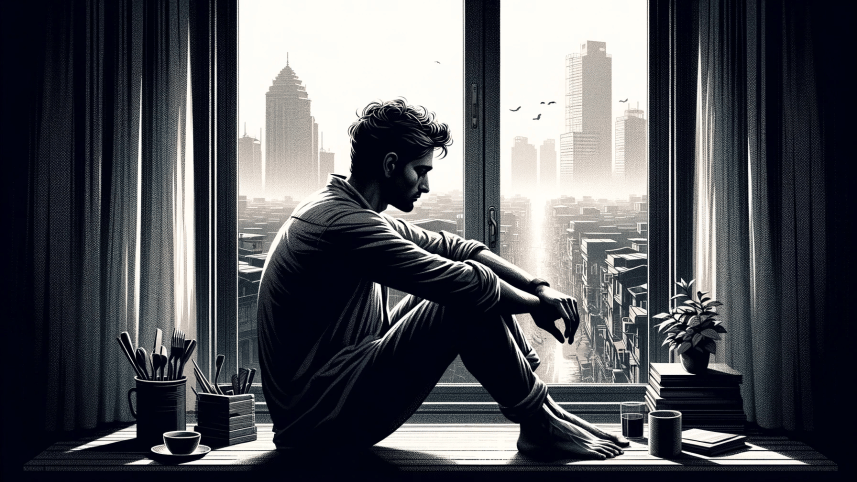Why do men keep their guard up?

In the bustling lanes of life, there are undercurrents not visible to the naked eye. Men, taught to be the unwavering rocks against the harsh waves of reality, often feel the pressure to maintain this facade. From the playgrounds of childhood to the boardrooms of adulthood, the mantra often whispered is "Be strong, don't show weakness. Don't show them you are bleeding."
What stops men from opening up? One has to dive deeper, like a diver exploring the depths of the ocean. Externally, societal norms play their part. The expectation of being stoic, the fear of judgement, and the stereotype of manliness being synonymous with emotional fortitude create an invisible barrier. It's like donning an armour 24/7 that's supposed to keep you safe from anything and everything unwelcome, but instead, paradoxically, it becomes a cage.
Internally, many harbour intense emotional turmoil. The fear of vulnerability—of showing a crack in the armour—looms large. It's as if, by sharing their inner turmoil, they might somehow diminish their own strength. Some say that opening up eventually comes back at them; whatever they share gets turned against them. For many, it's easier to navigate the familiar waters of silence than to venture into the unknown territory of open expression.
Here's the twist, though. A society in which men could freely express themselves, share, and be vulnerable without worrying about criticism or vindication is still something that many imagine. It's like discovering a pleasant, life-giving oasis in the middle of the desert. Opening up is not a sign of weakness but of profound bravery. It's acknowledging that, just like the sea, the human heart has its storms and calms.
The reluctance to open up does not just build walls around individuals; it affects society as a whole. It perpetuates a cycle where boys grow up emulating this silence, this emotional fortress. The result? Generations of men who are adept at navigating the external world but are strangers to the inner landscapes of their hearts.
The importance of self-preservation through expression cannot be overstated. It nurtures, it heals, and it makes things grow. The effects of open emotional communication are profound – healthier relationships, better mental health, and a more empathetic society.
In the end, it's about changing the narrative, much like shifting the perspective. It's about understanding that strength and vulnerability are not opposites but companions on the journey of life. This brings up the point that balance should not be a goal but a journey. It's about creating a world where men do not just survive with their stories untold but thrive by sharing them.

 For all latest news, follow The Daily Star's Google News channel.
For all latest news, follow The Daily Star's Google News channel.
Comments